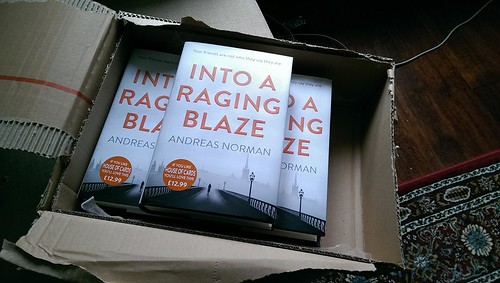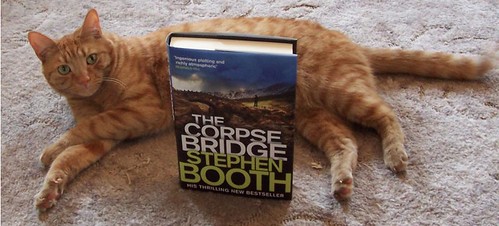We arrived in the run-up to the Battle of Bannockburn 700th celebrations, which kick off big time today. The Resident IT Consultant has understandably been more excited than me. He is the historian of us, and the native. But I thought I’d be reasonably OK with going along to the new visitors’ centre to experience the battle.
Maybe I’d have been less underwhelmed if I’d studied the website in detail before going. I didn’t look at it at all, because in general I’d expect anywhere like that to be possible to negotiate without an instruction manual.
It was complicated, as well as dark and confusing and it involved standing up at all times, which pales rather when you’ve signed up for nearly two hours of battle. (I know. It was worse back in 1314. I shouldn’t moan.) I don’t take in unexpected oral instructions very quickly, and I feel if a venue has to send you off into battle with a written booklet (there wasn’t one) they have missed out in the design of the whole place.
I suspect what it is, is a lack of theory of mind on their behalf. They know how it works, because they built it and/or work there. I’d be a lot better on a second visit, but at £11 a pop it’s not something people will do (unless a member of the Scottish – or English – National Trust), or can’t do if they are visiting from elsewhere.
You start off with 3D glasses which put you straight into the path of battle. We discovered we were in direct line between the arrows being fired and their goal. We had soldiers impaled by horrible weapons right next to us, and horses riding by an inch away. That was very instructive.
Next you can meet and chat to a dozen or so people involved in the battle, from both sides. Technically it veered between very easy to impossible to get your hand-waves hit the right spot. But like the first bit, it was quite interesting and helps you understand war of any kind.
Then came the ‘shows’ we had time booked tickets for. I’d assumed sitting down. I’d assumed slightly bigger venue. Finding it was tiny and standing up, and nowhere near interesting enough (to me) to remove the claustrophobia from being foremost on my mind, I spent five minutes picking up the courage to leave the room. As I’d suspected, the doors were not easy to open, and required the help of the person running the battle show, which rather removed any hoped for inconspicuousness on my part.
Once out, I didn’t mind ‘losing out’ or having to wait for my historian to stand through the whole thing. Although, the only choices for sitting down (I had over an hour to wait) was the wall by the car park or in the café. I tried both. Outside was cold, and inside I found out exactly how uncomfortable those trendy Tolix chairs can be.
When I had also witnessed other visitors being unable to identify the correct door to the toilets and overheard a member of staff saying they were badly signposted, I could only conclude someone has forgotten that first-time – and possibly once-only – visitors need clarity, and in more ways than one.
It’s like starting a new school. You know nothing to begin with, but learn by returning every day. You won’t be going to Bannockburn quite as frequently as that.
But, all in all, a lovely concept. I liked finding out what it might have been like standing in that field 700 years ago. I would have appreciated more information beforehand, but then so would the soldiers back in 1314, I imagine.
If you are not phobic, do go. But watch out for the arrows!






